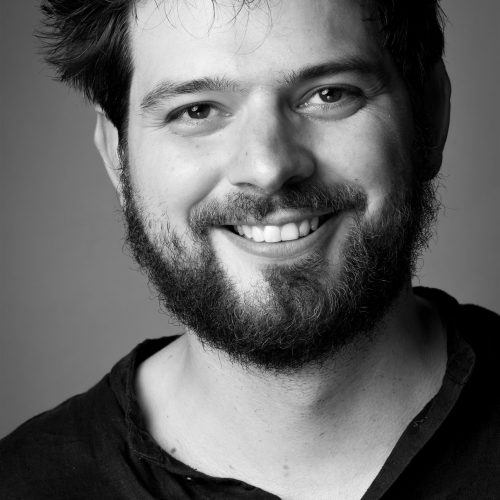
Jan Ickler
Doctoral Researcher
Hour of consultation: appointment via e-mail
Short-Bio
Jan Ickler is researcher and PhD-Candidate at the University of Kassel and is coordinator at the Center for Advanced Latin American Studies (CALAS). He is focussing his doctoral research on the role of economic elites in the political economy of Latin America. He has travelled Latin America during his studies and – after he finished his master-degree in Global Political Economy – he undertook a research project in Ecuador. Jan is also interested in social inequalities, resource policy and development theory.
Research Interests
• Elites and Sociology of elites
• Rent and Rentier-States
• Social inequalities
• (Neo-)Extractivism and development
Regional focus: Latin America (Ecuador, Bolivia, Argentina)
Recent Publications
- Warnecke-Berger, Hannes and Jan Ickler. 2023. (Eds).The Political Economy od Extractivism and the Seduction of Rent. London: Routledge.
- Ickler, Jan and Rebeca Ramos (forthcoming), Eds: The Political Economy of Elites in Latin America.
- Ickler, Jan (forthcoming):”Elites (and Planned Development) in Resource Exporting Countries”, in Burchardt, Hans-Jürgen and Irene Lungo, Eds. Wealth in Latin America: New Insights for the World’s Most Unequal Region. London: Routledge.
- Hans-Jürgen Burchardt, and Jan Ickler. 2023. “Riqueza, elites, impuestos: Viejos desafíos para un nuevo «giro a la izquierda».” Nueva Sociedad (303): 78–87.
- Ickler, Jan (forthcoming): “Natural Resource Rents and the Environment – How ‘Sustainability’ has Challenged the Developmental Coalition in Ecuador”, to be published manuscript based on a contribution to EWIS 2022, The Interconnected Worlds of the Past and the Present: Co-constituting the International, Thessaloniki 6.-9.Juli 2022.
- Burchardt, Hans-Jürgen and Jan Ickler (2021): “Time to live well: well-being and time affluence for sustainable development”. In: Third World Quarterly 42 (12), S. 2939–2955. DOI: 10.1080/01436597.2021.1981761.
Research Projects
Doctoral Thesis
Political Economy of Rent and Economic Elites in Latin America
15.09.2020 – 31.08.23
At the beginning of the new century, in many Latin American countries, so-called center-left governments came to power and positioned themselves publicly against the policies of the old, ‘traditional’ elites. From 2003 onwards, these governments profited economically from the price boom for natural raw materials on the world market, which in some cases – and accompanied by reforms – resulted in increased state revenues. While much of the current academic debate on Latin America is concerned with the economic, social and political consequences of this ”progressive” decade, focusing in particular on effects on social inequality, marginalization and poverty, this study is devoted to the economic elites of the region.
Ecuador under the government of Rafael Correa (2007-2017) is regarded as one of the more prototypical cases of the pink-tide and so-called neoextractivism, combining more active social policies as well as the extraction and export of natural resources. Despite the political success of the Correa government and the relatively stable economic growth in the Andean Republic, it remains questionable, to what extent the proclaimed change in elites really took place. Against this background, this study examines the internal and external factors that have had a lasting impact on the national configuration of elites in Ecuador in recent years. On the one hand, the focus of interest lies on the changed relative position of various economic and sectoral elites, especially their position vis-à-vis the state and other social actors.
Theoretically and conceptually, the study focuses on rents as a specific form of economic surplus in order to link possible economic shifts, reconfigurations and entrenchments to the position, actions and strategies of economic elites. Methodologically, the project combines qualitative survey methods (guideline-based interviews) with research in archives and the analysis of existing (economic) data (e.g. tax data, land ownership, assets) in several field research phases. The PhD project thus ties in with political-economic and sociological research on social inequalities in the region and seeks to add new aspects to the study of recent Latin American history.
CALAS-Project
Studying Wealth and the Elites
In the context of high levels of social inequality, recent research in Latin America has mainly focused on the situation of the marginalized and the poor. However, the constitution and concentration of wealth in the hands of small economic elites remains largely unexplored. To cope with this lacuna, the CALAS-Project “Studying Wealth and the Elites” aims to comprehensively examine wealth and economic elites in Latin America.
Firstly, the project takes up (classic) political economic considerations of wealth accumulation in Latin America. This includes the integration into the world market, the heterogeneity of national economies, and the frictions between different social groups. However, the research also promotes new empirical and comparative perspectives to provide a comprehensive map of wealth and economic elites in the region.
Secondly, the study expands sociological analyses of economic elites in Latin America and their networks with targeting specific patterns of their reproduction. Therefore, the project establishes elites as a relational category and scrutinizes their political and economic strategies in relation to the state and other economic actors. While analysing economic elites, the research project explicitly examines lifestyles and consumption patterns, professional preferences and educational biographies, as well as family constellations.
The project is funded by the German Federal Ministry of Education and Research (BMBF) and part of the CALAS Laboratory of Knowledge “Confronting Social Inequalities: Perspectives on wealth and power”.
Website: http://www.calas.lat/investigacion/desigualdad-social
